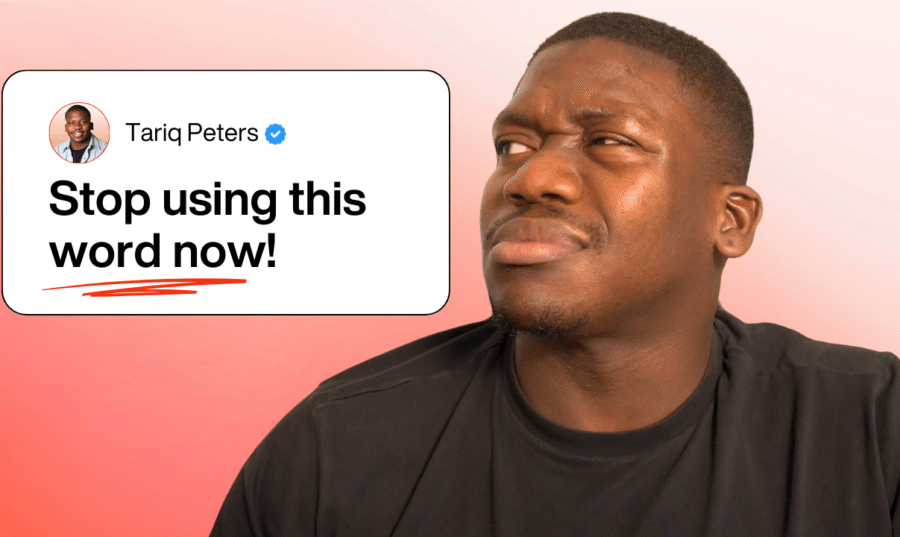One of the main things that stops us from showing up is the fear of being judged.
You’ve got something valuable to share. An idea, a skill, a perspective. But just as you’re about to post that video, publish that blog, or speak up in a meeting…doubt creeps in.
What if they don’t like it? What if they think I’m wrong? What if I embarrass myself?
That fear of public criticism is real. Left unchecked, it can keep you quiet before you’ve even had the chance to start. I’ve been there. Around this time last year, I was second-guessing everything I wanted to say. But I realised that staying silent meant staying stuck.
That moment of clarity pushed me to publish my first blog post, and I haven’t looked back since.
Keep reading to see how to manage the fear of public criticism so you can keep building, showing up and owning your space online.
Why Are We So Scared?
It’s wired into us. From school reports to social media comments, we’ve been taught to seek approval. Public criticism feels like rejection, and rejection feels personal. Especially in a world where opinions are constant and loud.
But the truth of it all is that criticism is inevitable. If you’re showing up, someone will always have something to say. And that’s not necessarily a bad thing.
Criticism Means You’re Visible
If no one’s saying anything, it probably means no one’s paying attention. The more visible you become, the more feedback you’ll attract, both good and bad.
That’s part of growth and part of building a brand that stands for something. Not everyone will agree, and that is ok.
With that in mind, you must remember, you’re not building your brand for everyone. You are building it for the right people. The ones who connect with your values, your message and your voice.
If you try to avoid all criticism, you will water down your voice until it disappears. But if you stand for something, you will attract your tribe.
Even if you attract those who don’t agree with you, disagreement is not always disrespect. Sometimes it is a sign that your message is bold enough to spark conversation. That is where growth begins.
Join the £1M Visibility Blueprint
Weekly insights from my £1M personal brand journey. Strategy, visibility systems and earned media plays you can use now.
Three Shifts That Help
Here are a few mindset shifts that have helped me (and many others) quiet the fear and start showing up fully:
1. Not Everyone’s Opinion Matters
Not everyone is your audience. If someone doesn’t get what you’re about, that’s fine. They’re not who you’re talking to.
Focus on the people you’re here to help, inspire or reach. Criticism from someone outside that circle? That’s just noise, and sometimes you need to avoid the noise at all costs.
2. Separate Your Work From Your Worth
You are not your post. You are not your pitch. You are not that one presentation. Feedback on your work isn’t a verdict on your value as a person. Detaching yourself emotionally helps you look at it more clearly and respond with intention, not defensiveness.
3. Reframe Criticism as Data
Instead of seeing criticism as a threat, try to see it as constructive information. Not all of it will be helpful, but some of it might actually teach you something. That tweak you hadn’t considered. That blind spot you missed.
You don’t have to agree with every comment, but you can decide what to take and what to leave.
Practical Tips to Get More Comfortable
- Start small and build up – You don’t need to jump straight into a podcast or viral thread. Comment on a post. Share a quick thought on your story. Practice public expression in low-risk spaces first.
- Prepare for responses, but don’t obsess -Think through your intention and trust it. Not everyone needs an explanation. Sometimes silence is the best reply.
- Document your wins – Keep a file of positive messages, testimonials or reminders of how your voice has helped someone. When fear creeps in, this becomes your armour.
- Create before you consume -Start your day by creating your own content before scrolling through everyone else’s. This helps you stay focused on your voice instead of being drowned in comparisons.
Moving Forward
Criticism will come, but silence is not safety. It is a missed opportunity.
If you believe in what you do, let it be seen and let it be heard.
You do not need to be fearless to build a personal brand. You need to be willing.
Every voice that ever made a difference started with someone who chose to speak, and like the saying goes, the best time to start was yesterday. The next best time is now!
See you next week!






[…] The result? Cold content. No real voice. No real connection. […]